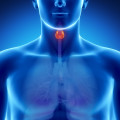Learn more about Dairy Allergy Symptoms
Dairy allergy includes allergy to milk and milk products, and it accounts for the largest share of food allergy among American children. Milk allergy symptoms are not uncommon for adults either, but normally kids grow a tolerance for the animal protein once they grow up to the school going age. If you, any of your family members or your kid has ever suffered from dairy allergy do not take it lightly. Dairy allergy can be life threatening. But, to be careful about dairy allergy you have to be aware of symptoms of dairy allergy and distinguish these from the symptoms of lactose intolerance.
Dairy allergy is an allergic reaction of your body’s immune system to a protein in the milk whether it is cow milk, goat milk or any other milk from a grazing animal.
Symptoms of milk allergy
The immune system of your body responds severely to a dairy allergy and there can be several manifestations of such adverse immune reaction. Moreover, these symptoms can manifest within minutes or may take hours to manifest after having dairy products.
Some immediate symptoms of a dairy allergy in an adult can be
- Itchy skin rash, watery eyes, eczema and hives immediately after consumption.
- Wheezing.
- Sudden drop in blood pressure
Some of the delayed symptoms of a dairy allergy in adults can be
- Runny nose and coughing. You will feel a shortness of breath along with a tightness in the chest. If the attack is severe you will have difficulty breathing due to near chocking of the airways as a result of the adverse reaction of your immune system.
- Vomiting and loose stool. There can even be blood in the stool.
- Diarrhea and abdominal cramp etc.
In children the symptoms of daily allergy can be
- Allergic conjunctivitis which is signified by itchy, red and watery eyes.
- Hives and eczema of the skin.
- Nausea, vomiting and colic pain in the abdomen.
- Diarrhea
- Coughing, wheezing or runny nose.
- Swelling of face, lips or tongue.
Dairy allergy in infants
Many babies suffer from dairy allergy throughout the world. They can be allergic to the infant formula foods or your breast milk if you are drinking milk or having dairy products. Dairy allergy symptoms differ from one baby to another. Such babies need to be fed with hypoallergenic infant formula. However, if your baby is breastfed it has less chance of developing dairy allergy.
Symptoms of dairy allergy in babies can be
- Vomiting
- Excessive crying and irritable mood mainly due to colic pain, especially after a feed
- Blood in stool
- Lack of gain in weight
- Hives
- A scaly rash on the skin
- Coughing and wheezing
- Stuffy nose and watery eyes
- Breathing trouble and swelling in the throat and mouth
Managing dairy allergy
Prevention is better than cure, as it is said. Moreover, as of now, there is no cure for dairy allergy. So avoiding foods containing milk or other dairy products are the best guard against dairy allergy.
Dairy products that you need to avoid include all kinds of milk and milk products including casein, butter, buttermilk, cheese, cream cheese, half & half, ice-cream, custard, cottage cheese, curd, pudding, yoghurt and any other milk product.



Be the first to comment on "Dairy Allergy Symptoms in adults, children and infants"